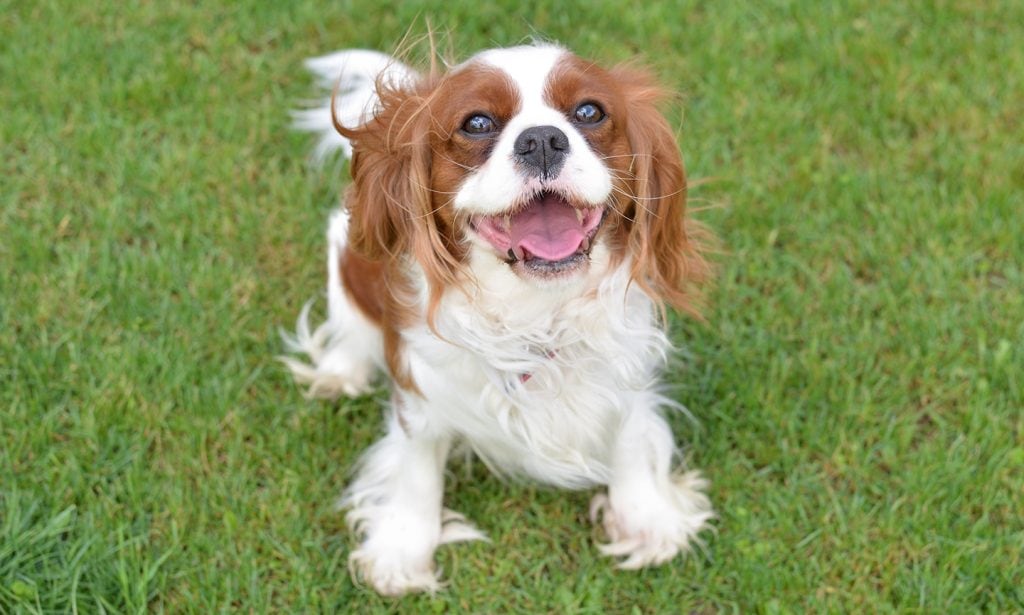If you're contemplating adding a Cavalier King Charles Spaniel to your family, a common concern is their barking habits. Known for their friendly and gentle temperament, Cavalier King Charles Spaniels are generally not excessive barkers. However, like any breed, they may bark to communicate their needs or alert you to something. Understanding the reasons behind their barking is crucial to effectively addressing it. Delving into the question, "Do Cavalier King Charles Spaniels Bark a Lot?" will provide insights into the typical behavior of these charming dogs and guide you in creating a harmonious living environment.
In this article, we will explore the factors that contribute to a Cavalier King Charles Spaniel's barking behavior and provide practical tips on how to manage it. Whether you're a first-time Cavalier owner or already have one in your home, this guide will help you navigate their barking tendencies with confidence. So, if you're ready to learn more about why Cavalier King Charles Spaniels bark and how to address it appropriately, keep reading.

Understanding the Natural Behavior of Cavalier King Charles Spaniels
Before diving into the specifics of Cavalier King Charles Spaniels' barking behavior, it's important to understand their instincts and temperament. These dogs are known for their affectionate and sociable nature, making them excellent companions for individuals and families alike. They thrive on human interaction and enjoy being part of a loving home.
Cavalier King Charles Spaniels were originally bred as companion dogs, and their friendly disposition reflects their breeding purpose. They have a strong desire to please their owners, which can contribute to their tendency to bark when seeking attention or when they perceive something as a potential threat. It's important to keep in mind that their barking is typically not excessive or incessant compared to some other breeds.
While Cavalier King Charles Spaniels are generally not prone to excessive barking, it's essential to consider the factors that may influence their barking behavior.

Factors That Influence Barking Behavior in Cavalier King Charles Spaniels
Several factors can contribute to a Cavalier King Charles Spaniel's barking behavior. By understanding these factors, you can better address and manage their barking tendencies.
- Territorial instincts: Like many other dog breeds, Cavalier King Charles Spaniels have an instinct to protect their territory. They may bark to alert their owners of any perceived threats or strangers approaching their living space.
- Separation anxiety: Cavalier King Charles Spaniels thrive on human companionship, and when left alone for extended periods, they may experience separation anxiety. Barking can be a sign of distress and a way for them to seek comfort or attention.
- Fear or insecurity: If a Cavalier King Charles Spaniel feels threatened or insecure in a particular situation, they may resort to barking as a defense mechanism. It's important to identify and address the underlying cause of their fear or insecurity to reduce their barking.
These are just a few examples of factors that can influence a Cavalier King Charles Spaniel's barking behavior. Every dog is unique, and understanding your specific dog's triggers and tendencies will help you manage their barking effectively.
How Much Do Cavalier King Charles Spaniels Bark?
While Cavalier King Charles Spaniels has a reputation for being relatively quiet compared to some other breeds, it's essential to remember that each dog is an individual. Some Cavalier King Charles Spaniels may naturally be more vocal than others. However, excessive or incessant barking is not characteristic of this breed.
It's important to differentiate between normal, occasional barking, and excessive barking. Occasional barking is part of a dog's natural communication, and it can be expected from any breed. Excessive barking, on the other hand, may indicate an underlying issue that needs to be addressed.
Tips for Managing Excessive Barking in Cavalier King Charles Spaniels
If you find that your Cavalier King Charles Spaniel's barking is becoming excessive or problematic, there are several strategies you can employ to manage and reduce it. Here are some tips to help you address excessive barking in your Cavalier:
- Identify the triggers: Pay attention to what triggers your Cavalier's barking episodes. Is it when someone approaches the front door? Or when they're left alone? By identifying the triggers, you can work on desensitizing your dog to these situations.
- Provide mental and physical stimulation: Boredom or pent-up energy can contribute to excessive barking. Make sure your Cavalier gets enough mental and physical exercise to keep them stimulated and content.
- Positive reinforcement training: Utilize positive reinforcement techniques to train your Cavalier to bark less. Reward them when they remain calm in situations that would typically trigger barking. This will reinforce the desired behavior.
Remember that consistency and patience are key when working on reducing excessive barking. It may take time for your Cavalier to learn new behaviors, but with dedication, you can make progress.
Training Techniques to Reduce Barking in Cavalier King Charles Spaniels
Training your Cavalier King Charles Spaniel to bark less requires consistent effort and positive reinforcement. Here are some training techniques that can help you achieve this goal:
- "Quiet" command: Teach your Cavalier the "quiet" command by using a calm and firm voice. When they stop barking, reward them with a treat or praise. Repeat this training regularly until they associate the command with being quiet.
- Distraction techniques: Redirect your Cavalier's attention away from barking by providing them with an alternative activity or toy. This will help divert their focus and reduce their inclination to bark.
- Socialization: Proper socialization from an early age can help reduce fear-based barking. Expose your Cavalier to various people, animals, and environments to help them feel more confident and secure.
Remember to be patient and consistent with your training efforts. With time and positive reinforcement, you can teach your Cavalier King Charles Spaniel to bark less.

Common Misconceptions About Cavalier King Charles Spaniels and Barking
There are several misconceptions surrounding Cavalier King Charles Spaniels and their barking tendencies. It's important to address these misconceptions to ensure a better understanding of the breed:
- Cavaliers do not bark at all: While Cavalier King Charles Spaniels are generally not excessive barkers, they do communicate through barking like any other dog. It's unrealistic to expect them to be completely silent.
- Excessive barking is a breed characteristic: Excessive barking is not a breed characteristic of Cavalier King Charles Spaniels. However, individual dogs may have unique personalities and tendencies.
- All barking is problematic: It's important to differentiate between normal, occasional barking, and excessive barking. Occasional barking is a natural form of communication, while excessive barking may indicate an underlying issue that needs to be addressed.
Understanding these misconceptions will help you have realistic expectations and better address your Cavalier's barking behavior.
Other Vocalizations of Cavalier King Charles Spaniels
While barking is the most common form of vocalization for Cavalier King Charles Spaniels, they may also make other sounds to communicate their needs or emotions. These can include whining, whimpering, growling, or even howling. It's important to pay attention to the context and accompanying body language to understand what your Cavalier is trying to communicate.
Seeking Professional Help for Barking Issues in Cavalier King Charles Spaniels. If you find that your Cavalier King Charles Spaniel's barking is persistent, excessive, or causing significant disruptions, it may be beneficial to seek professional help. A qualified dog trainer or behaviorist can assess the underlying causes of the barking and provide tailored strategies to address the issue effectively. They can also help you understand if any underlying health concerns are contributing to the barking behavior.

Conclusion and Final Thoughts on Cavalier King Charles Spaniels and Barking
Cavalier King Charles Spaniels are generally not excessive barkers, using barking to communicate needs and alert to potential threats. Factors like territorial instincts, separation anxiety, and barking behavior. Managing it effectively involves positive reinforcement training, consistency, and patience. Teaching your Cavalier to bark less and respond appropriately to stimuli is achievable. Understanding the nuanced answer to "Do Cavalier King Charles Spaniels Bark a Lot?" empowers owners to foster a harmonious relationship with their charming companions while addressing their instincts through thoughtful training and care.
Remember that addressing excessive barking requires time and effort, and each dog is unique. By providing mental and physical stimulation, identifying triggers, and utilizing positive reinforcement techniques, you can help your Cavalier King Charles Spaniel become a well-behaved and content member of your family. And most importantly, remember to enjoy the companionship and love that these adorable dogs bring into your life.
So, if you're considering adding a Cavalier King Charles Spaniel to your family or already have one in your home, embrace their unique barking tendencies and work together to create a harmonious environment for both you and your furry friend.